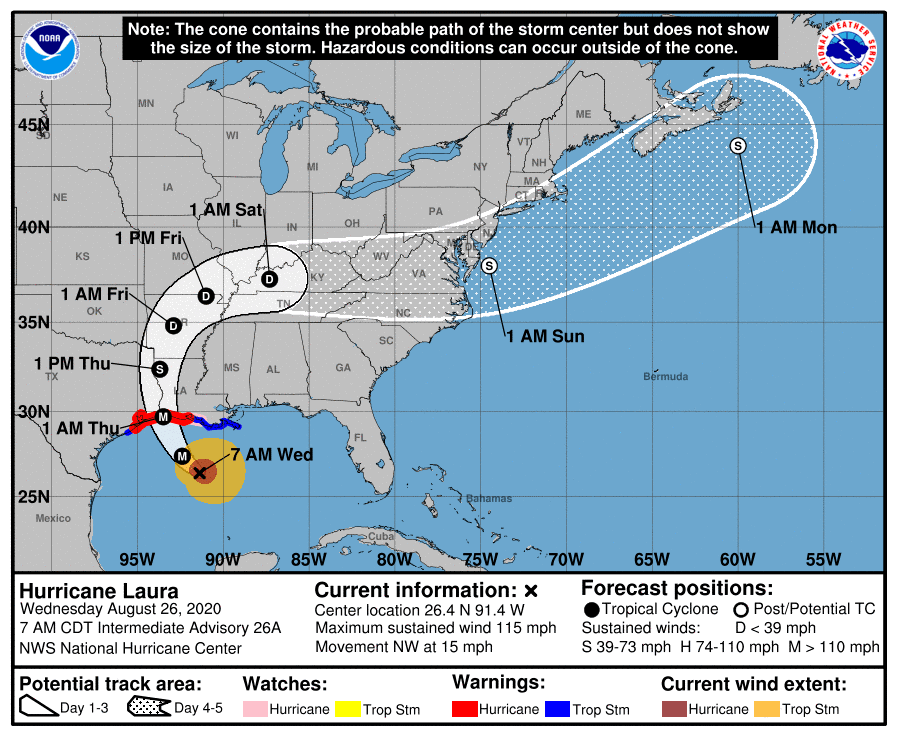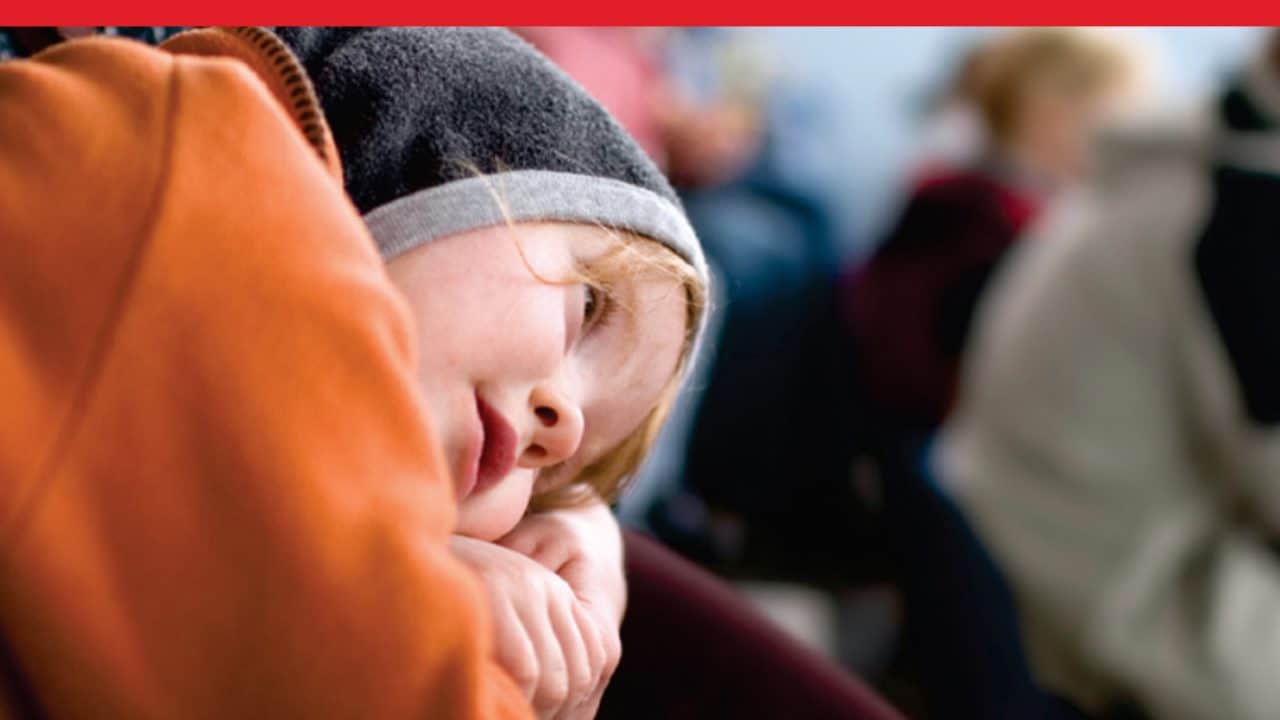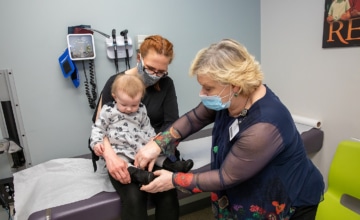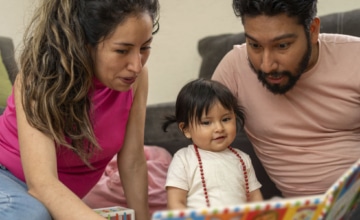ZERO TO THREE parenting experts offer tips for parents of babies and young children in the path of the storm.

Hurricane season is here and many parents of babies and young children will be affected by these strong storms.
Parenting experts at ZERO TO THREE, the leading nonprofit dedicated to ensuring babies and toddlers have a strong start in life, suggest these tips for parents and caregivers of babies and young children in the path of the storm:
1. Follow safety tips and evacuation procedures.
Collect emergency supplies you may need: water, canned goods, paper products, medications, and batteries. Don’t forget diapers, formula and baby-friendly foods as well. If you can’t find bottled water, fill as many containers as you can. Fill your gas tank, withdraw some cash from the bank, and identify your evacuation route and nearby shelters. If you are told to evacuate, then gather what you need and do so.
2. Pay attention to your facial expression and body language.
Your baby or young child is watching your nonverbal cues to decide whether they are safe. Take a moment to breathe and relax your face and shoulders. These small physical shifts go a long way in creating a solid sense of safety for your child.
3. Notice your tone.
It’s perfectly normal during this time to have anxiety in your voice, but your baby can sense your fear at as early as 3 months. Stay in the present moment. The larger picture may be downright scary. But if everyone is physically safe, remind yourself that you and your family are okay. By being aware of your tone, and keeping your voice calm, you can help your little one feel safe.
4. Keep routines consistent.
You will surely be stressed and overwhelmed prepping or packing. But try to keep your young child’s daily schedule as normal as possible. It can help your child if you can maintain some of the routines of their day-to-day lives, such as predictable meals and bedtimes. Knowing what to expect can help children feel physically and emotionally safe—it might help you feel more grounded as well.
5. Bring along a cherished toy or blanket and extra snuggles.
If you are planning to evacuate, make room for one of your child’s special stuffed animals, blankets, small toys or books. This special item can help your child as you all adapt to a new place for a few days, or longer. Young children may need more soothing physical touch than usual during this time as well. When surrounded by everything new, your little one is probably going to want their most loved and familiar person (you!) close by at all times.
6. Let your children know what’s coming next.
While you are navigating the storm, life may be chaotic. Understanding what might come next can help children feel more safe and secure. Even in situations where you need to move quickly, tell children what is about to happen. “We are getting ready to go to a place where we’ll be safe during the storm. There will be many other families there and we’ll all stay safe together.”
7. Shield your child from frightening conversations or images.
Keep the details of the storm away from your children as much as possible. Babies can experience fear early in life, starting at 3-5 months. If you are in a place, like a shelter, where you can’t easily move away from an intense conversation, tell your child a story or sing a song. This can be a good distraction strategy.
8. Play, sing, and tell stories.
While you may not feel much like playing, try to find some time to connect with your child in a playful way. This is a form of normalcy for them and helps them feel close to you.
9. Know that during this time your child may seem to lose some skills they’ve already gained.
It’s perfectly normal for a child to “lose” some developmental skills during periods of intense family stress. For example, a child who is potty-trained may begin having accidents or a child who’s a good sleeper may begin waking up at night. Your child may also show less self-confidence and independence and want to stay close to you and be held more than usual. This “clinginess” is a way for them to feel safe and close to you, which is so important to them now.
10. If you and your child weathered the storm together, you may find that your child cries or fusses more, or seems to be too withdrawn, even after the event.
This means that children are still feeling unsure and unsettled. They will need extra cuddling, play, and attention during this time, which can be tough since it’s likely you will be facing many demands in the aftermath. Be sure to tell your child when you have to leave him or her (avoid “sneaking out”), and consider using a routine—like a special kiss or song—to make the good-bye easier. If your child’s behaviors persist, think about talking with his or her health care provider or seeking out a mental health provider with experience in supporting young children. It is common for both children and adults to need some additional support following a scary and sometimes traumatic event.




